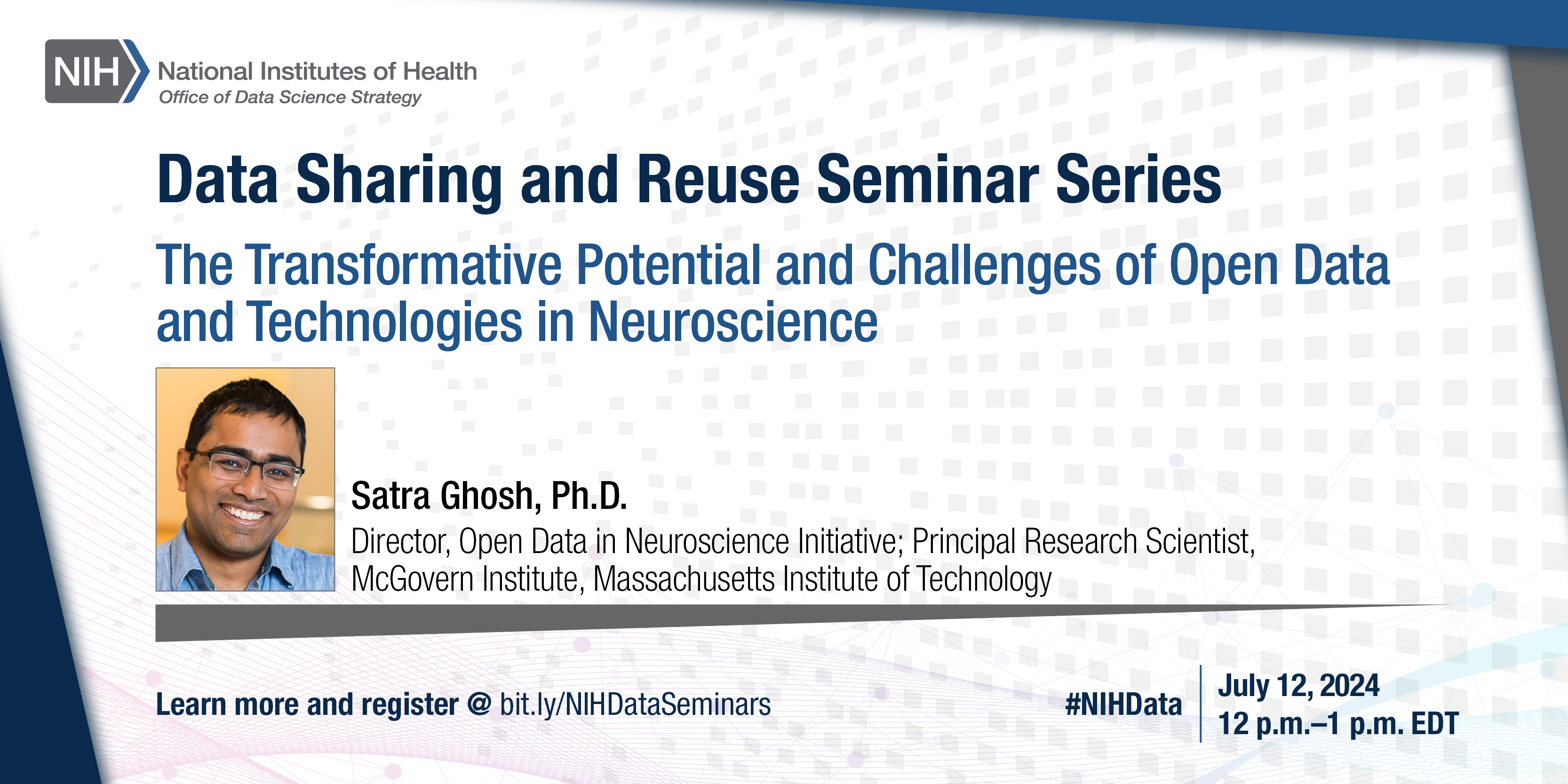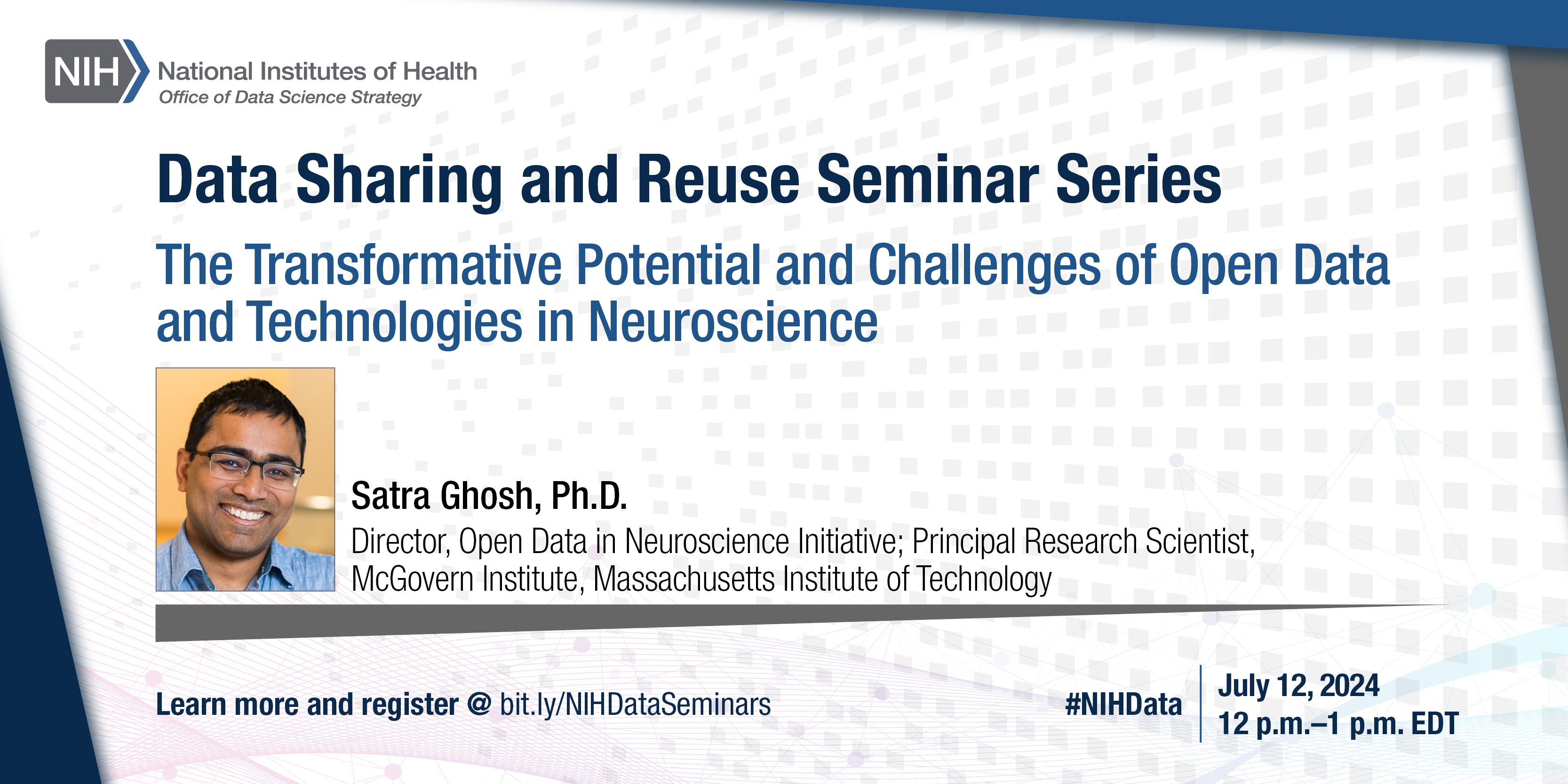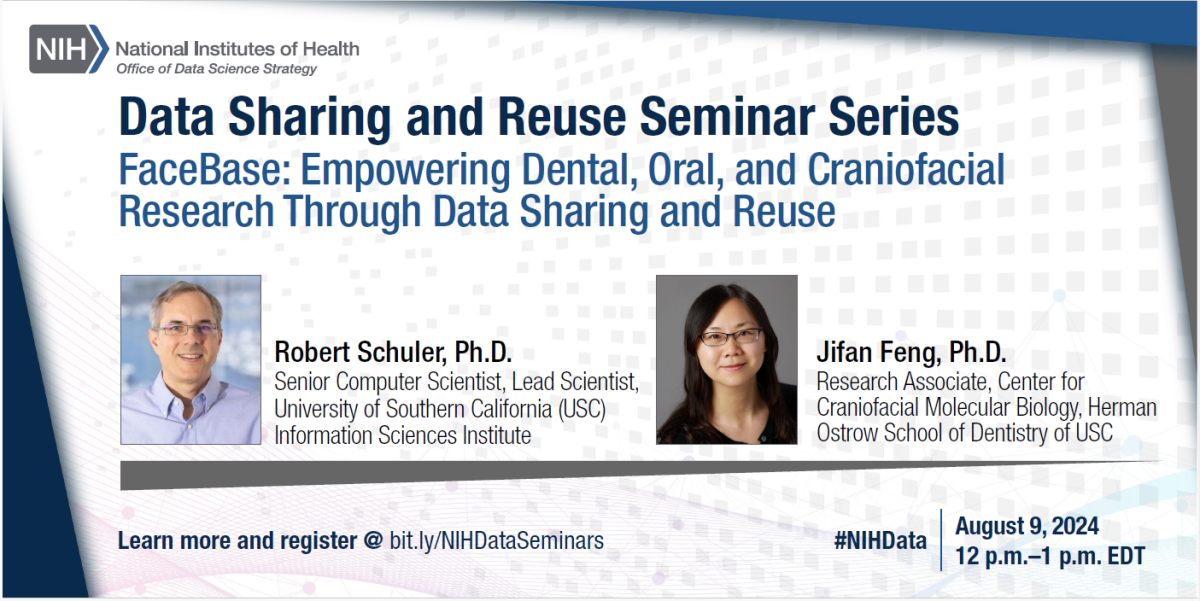Join Us at Our Upcoming Data Sharing and Reuse Seminars
Friday, July 5, 2024

I am excited to invite you to our Data Sharing and Reuse Seminar where you will learn about real-world use cases for groundbreaking ways of sharing and reusing data to accelerate research.
 On July 12th, Dr. Satra Ghosh, Director of Open Data in Neuroscience Initiative and a Principal Research Scientist at the McGovern Institute for Brain Research at MIT, will speak about the transformative potential and challenges of open data and technologies in neuroscience.
On July 12th, Dr. Satra Ghosh, Director of Open Data in Neuroscience Initiative and a Principal Research Scientist at the McGovern Institute for Brain Research at MIT, will speak about the transformative potential and challenges of open data and technologies in neuroscience.
Dr. Ghosh will discuss how a network of tools and platforms to share, analyze and interpret neuroscience data democratizes and accelerates neuroscience discovery. Open data in neuroscience research will facilitate an understanding of neural systems and their impact on human health and behavior.
 On August 9th, we will hear from Dr. Robert Schuler, Senior Computer Scientist and Lead Scientist at Information Sciences Institute, and Dr. Jifan Feng, Research Associate at the Center for Craniofacial Molecular Biology at the Herman Ostrow School of Dentistry of the University of Southern California. Drs. Schuler and Feng will highlight FaceBase, a platform that houses craniofacial data, and how it can be used to answer unresolved questions in craniofacial research. The platform aims to make the vast wealth of existing craniofacial data more useable for scientists, clinicians, and surgeons.
On August 9th, we will hear from Dr. Robert Schuler, Senior Computer Scientist and Lead Scientist at Information Sciences Institute, and Dr. Jifan Feng, Research Associate at the Center for Craniofacial Molecular Biology at the Herman Ostrow School of Dentistry of the University of Southern California. Drs. Schuler and Feng will highlight FaceBase, a platform that houses craniofacial data, and how it can be used to answer unresolved questions in craniofacial research. The platform aims to make the vast wealth of existing craniofacial data more useable for scientists, clinicians, and surgeons.
On September 13th, Dr. Danielle Braun, Principal Research Scientist, Director of Data Science for Environmental and Climate Health at Harvard T.H. Chan School of Public Health, and Dr. Charles Schmitt, Director, Office of Data Science, National Institute of Environmental Health Sciences (NIEHS) will discuss two programs related to health impacts of climate change, the CAFÉ Research Coordinating Center (CAFÉ RCC) and Climate and Health Outcomes Research Data Systems (CHORDS). The CAFÉ RCC is accelerating the translation of research at the intersection of climate change and health by building a community of practice. CHORDS is strengthening data infrastructure for patient-centered outcomes research on climate change and health by providing data on environmental factors, exposures, and health outcomes.
These sessions are part of the ongoing Data Sharing and Reuse Seminar (DSRS) series, which highlights a new story each month, told by researchers at the forefront of sharing and reusing data from diverse disciplines. The series highlights the enormous potential for using existing, rich data sets to generate new insights, as well as researchers who are using creative and innovative ways to share scientific data. The DSRS series is held on the second Friday of each month at noon ET.
For a deeper understanding of data sharing and reuse, and to hear stories from across different research communities, you can view recordings of previous DSRS sessions here.
If you'd like to receive updates on the DSRS and other ODSS activities and announcements, please sign up for our email list.
If you are interested in speaking at a future DSRS event, please contact your NIH Program Officer and let them know you are interested in being nominated.


